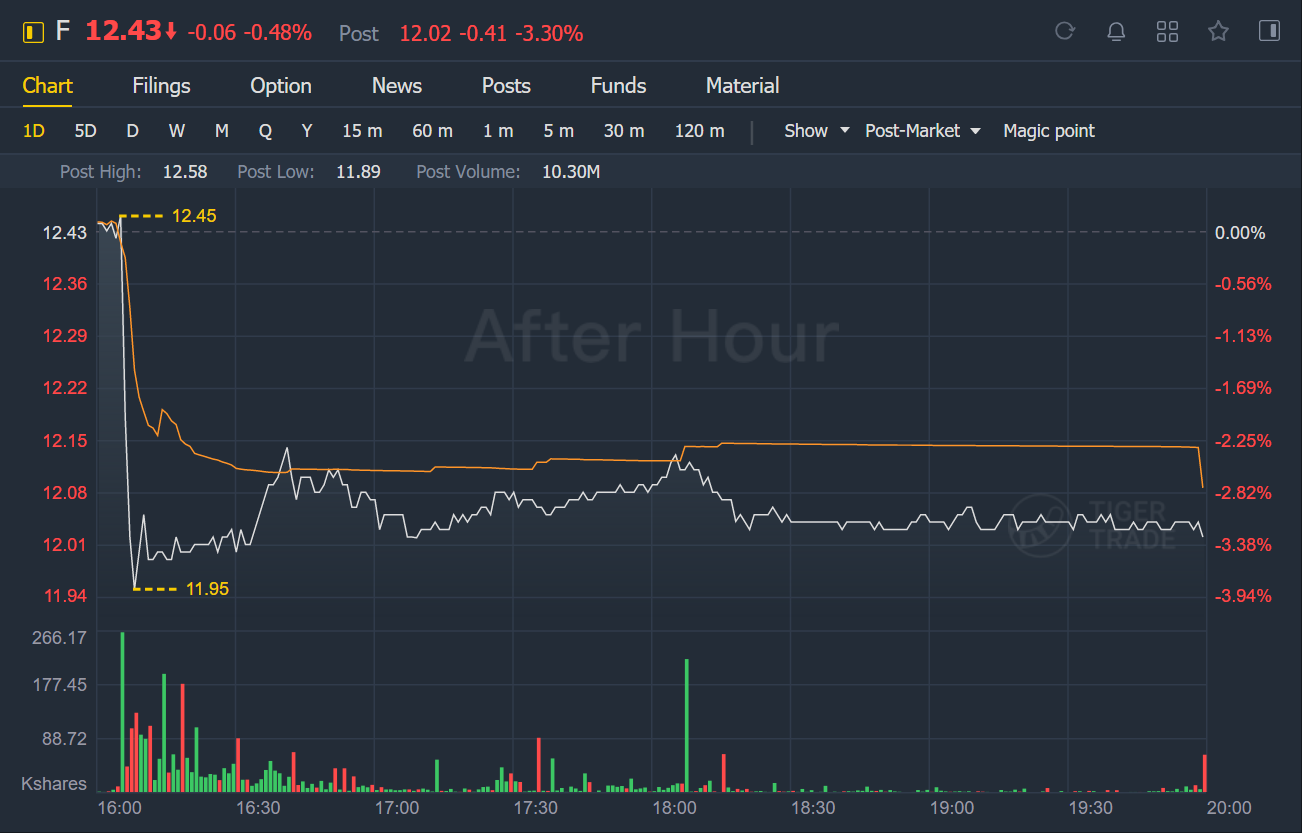Ford Motor Co on Wednesday reported a strong quarterly profit, but warned that the global semiconductor chip shortage will slash production in the second quarter by 50%, before bottoming out and then improving through the year.
The automaker said the global semiconductor shortage would cost it about $2.5 billion and about 1.1 million units of lost production in 2021.
Its shares were down 3.3% in after-hours trade on Wednesday.
Ford said its net income of $3.3 billion was the best since 2011, and adjusted pre-tax profit was a record $4.8 billion. Ford lost $2.0 billion in the first quarter of 2020.
The company said the chip shortage will slash full-year earnings before interest and taxes to $5.5 billion-$6.5 billion.
In February, Chief Financial Officer John Lawler said the company was on course to earn $8 billion to $9 billion in adjusted EBIT, including a $900 million non-cash gain on its investment in Rivian, the electric vehicle start-up.
Revenue in the quarter increased to $36.2 billion, from $34.3 billion a year earlier.
Ford was able to offset some of the impact of lost production in this year's quarter by boosting the average transaction price per vehicle sold to nearly $48,000, compared with just over $44,000 a year ago, according to research firm Edmunds.com.
At the end of the quarter, Lawler said on Wednesday, Ford had 22,000 vehicles built, but parked to wait for chip installation to complete assembly. Among those were some of the company's best-selling F-series pickup trucks, which generate much of Ford's profit.
Overseas, Ford reported revenue in Europe up 13% to $7.1 billion, and $341 million in pretax profit, reversing a year-ago loss.
Revenue climbed 39% to $800 million in China, where Ford narrowed its loss to $15 million, compared with a loss of $241 million a year earlier.

